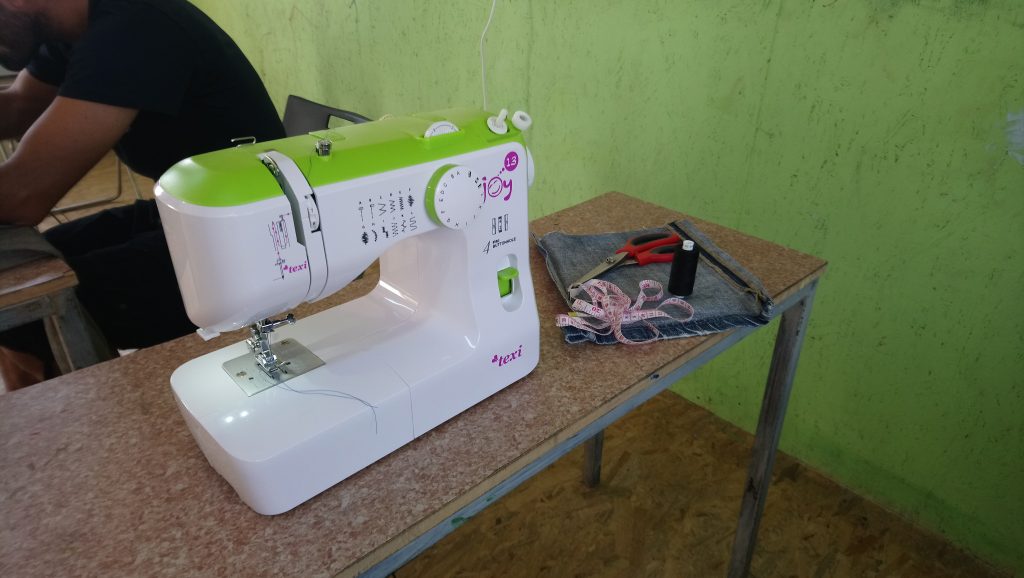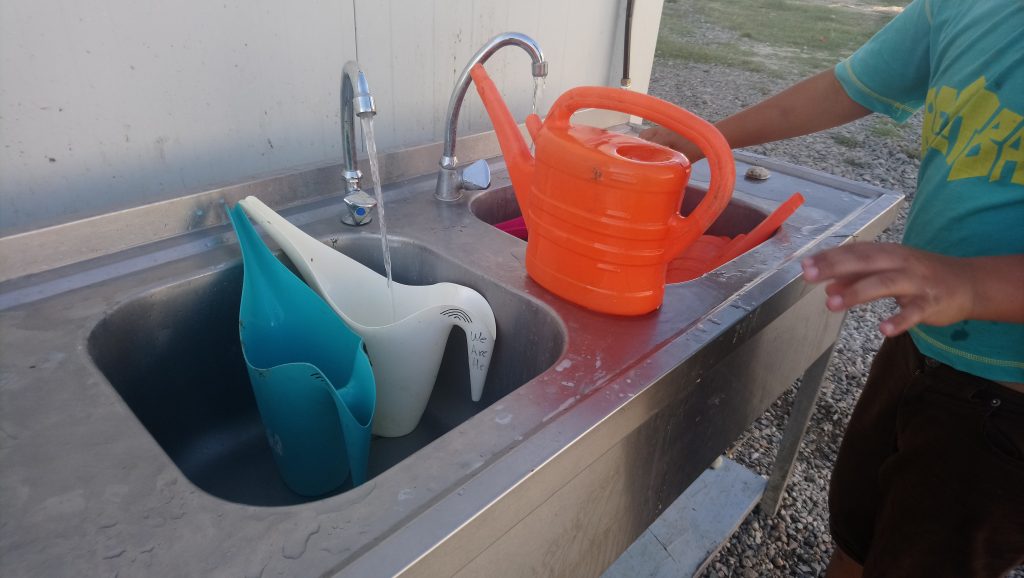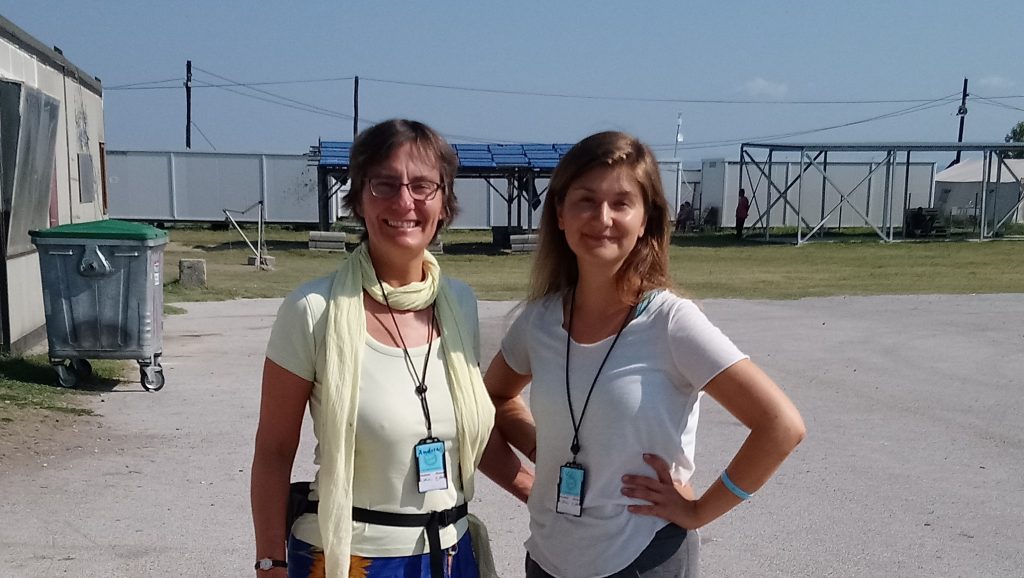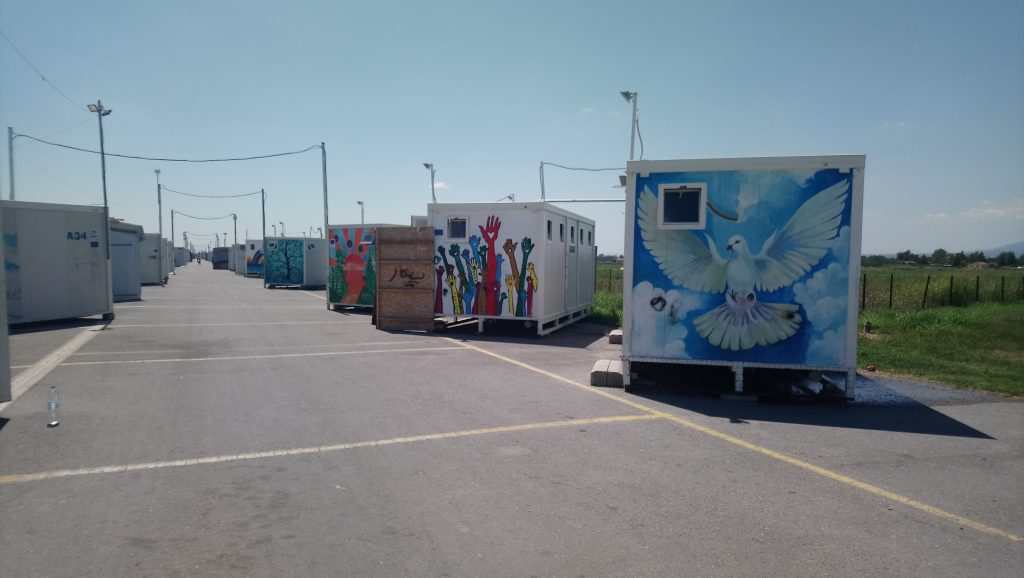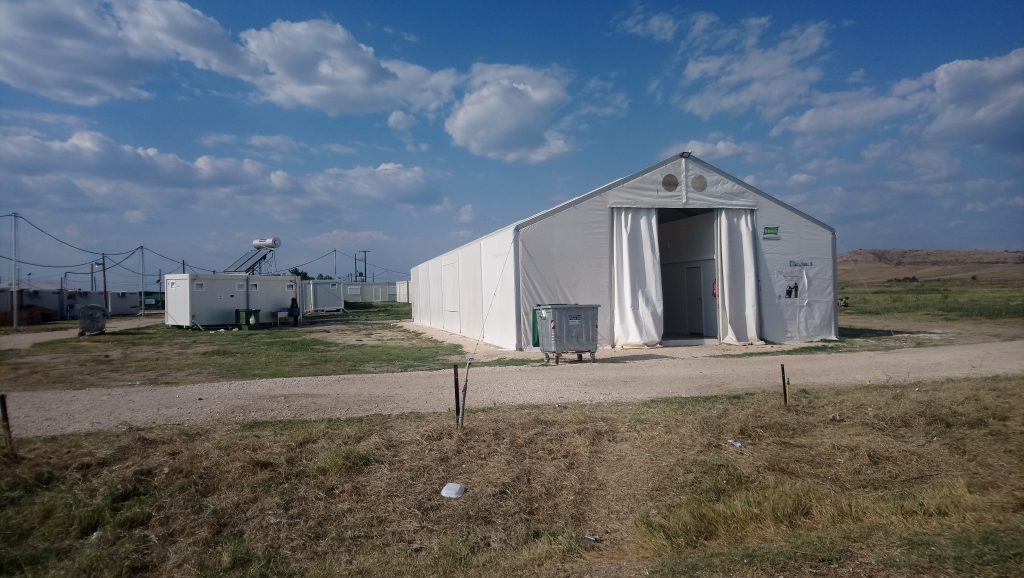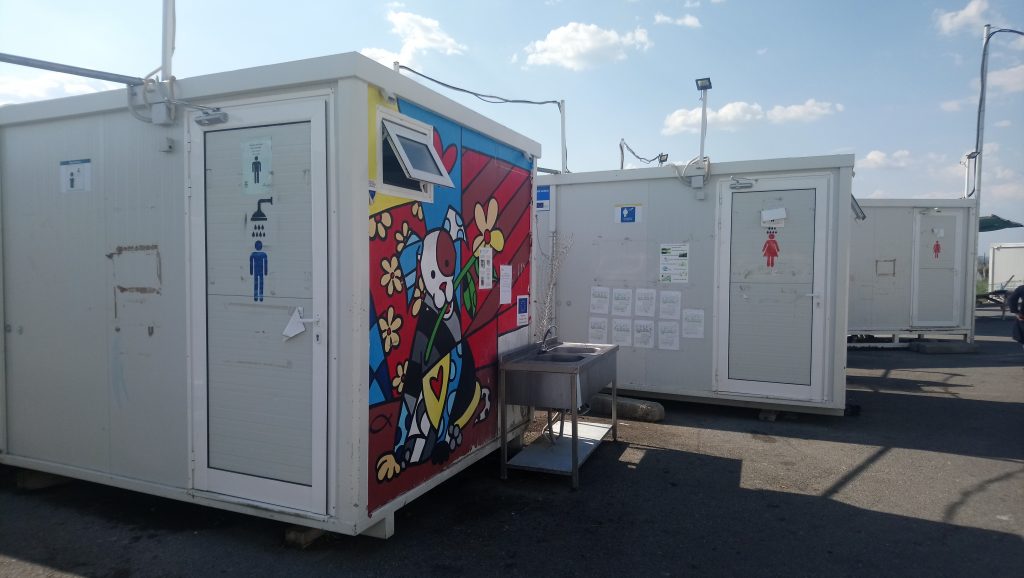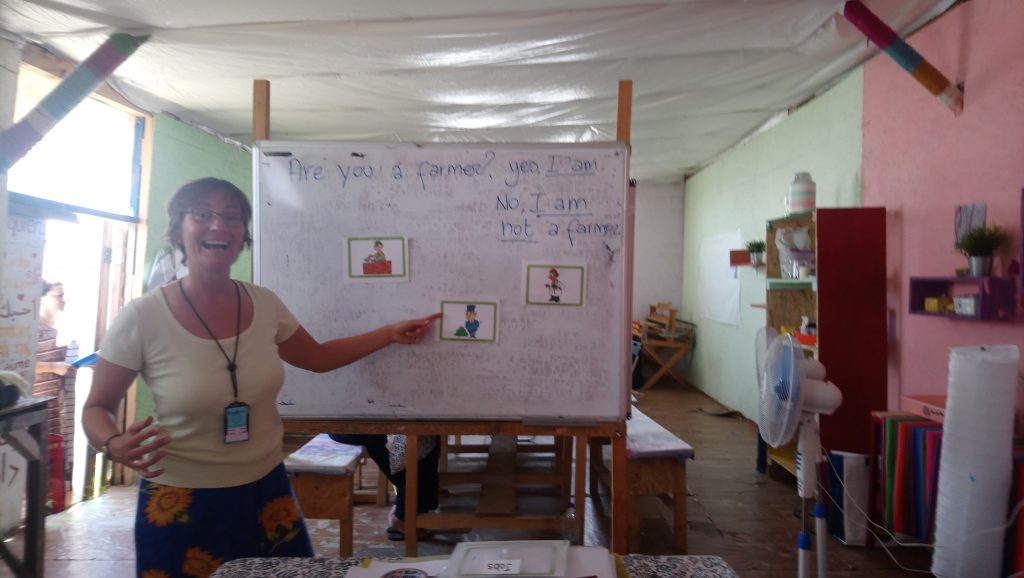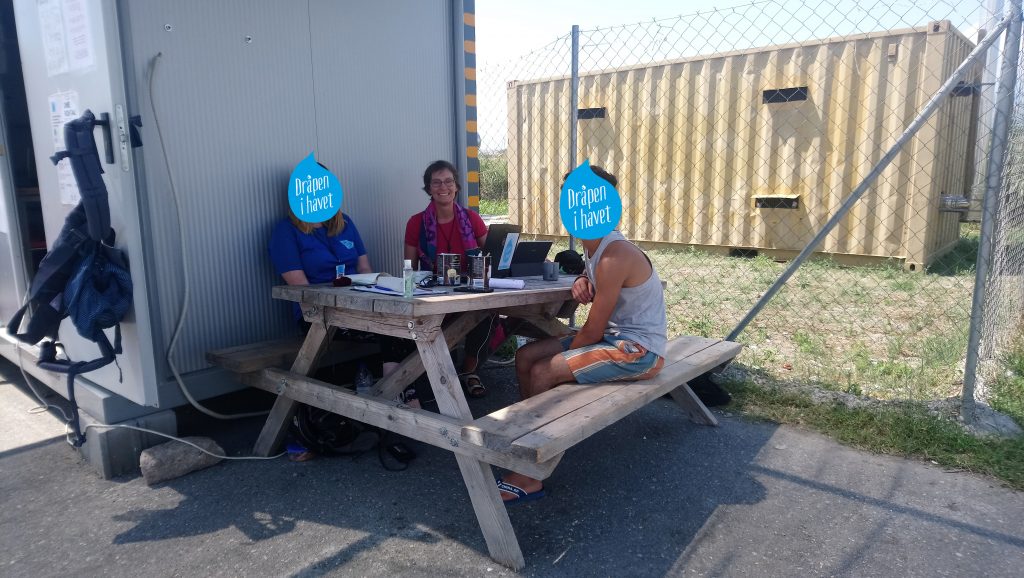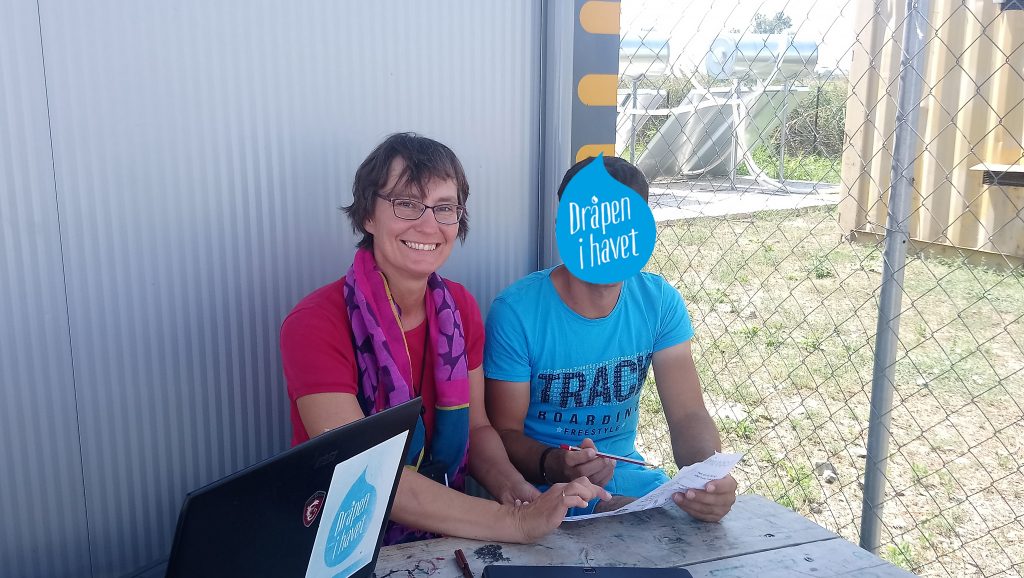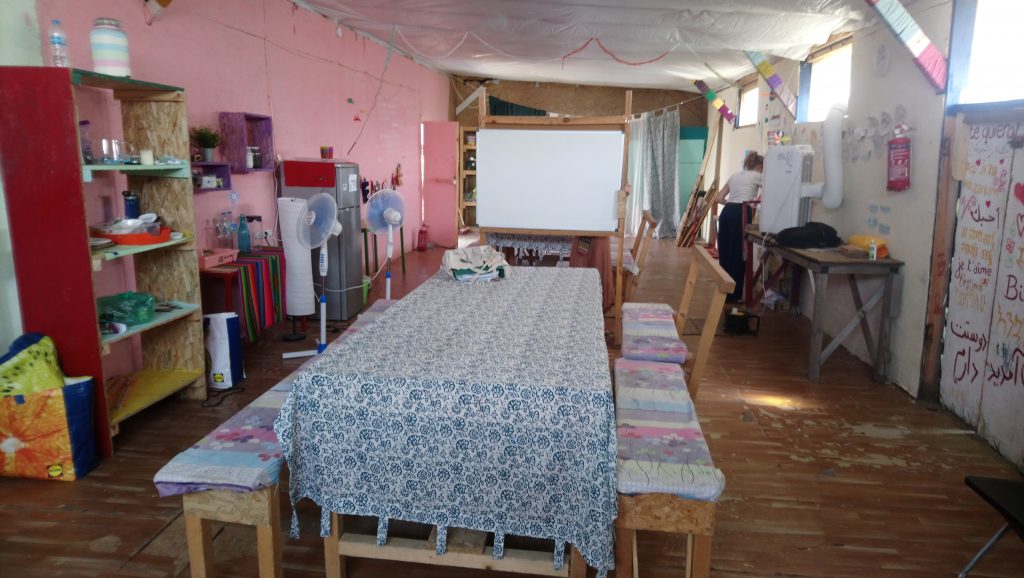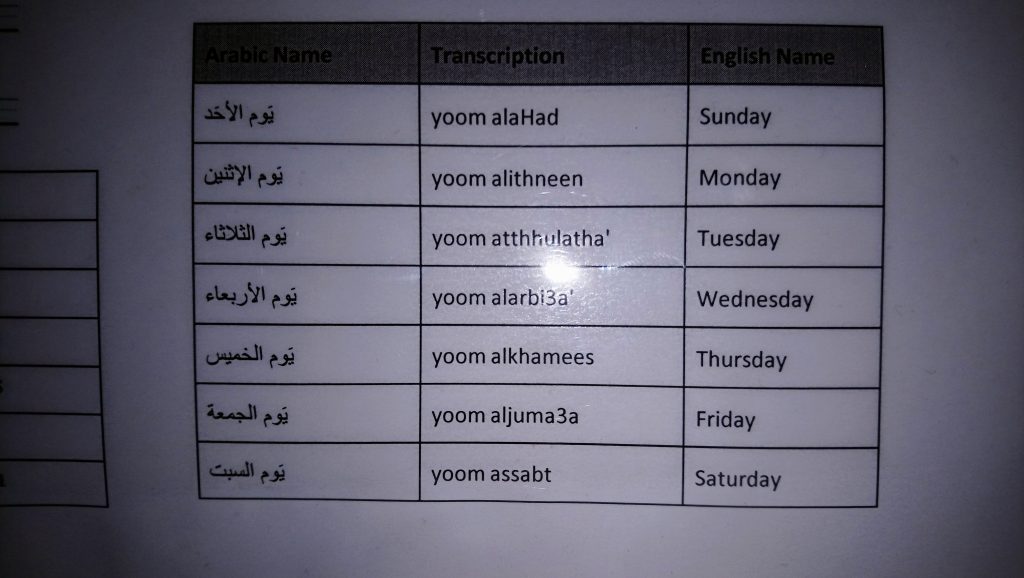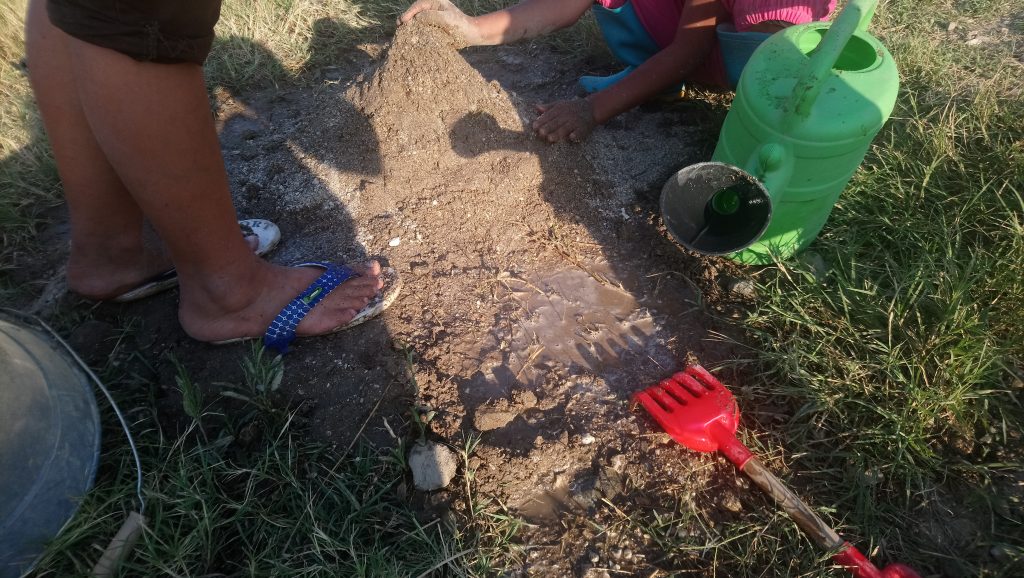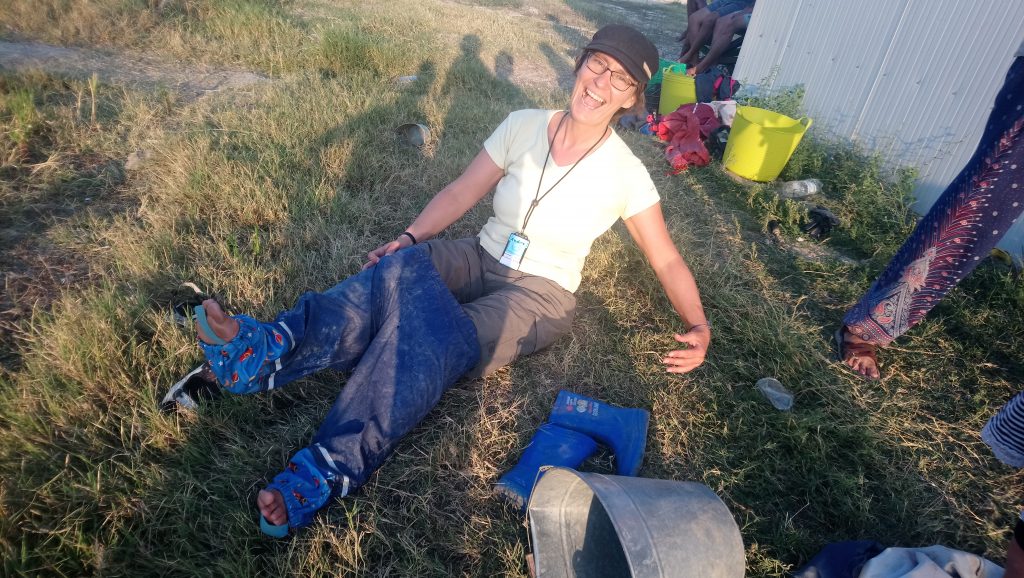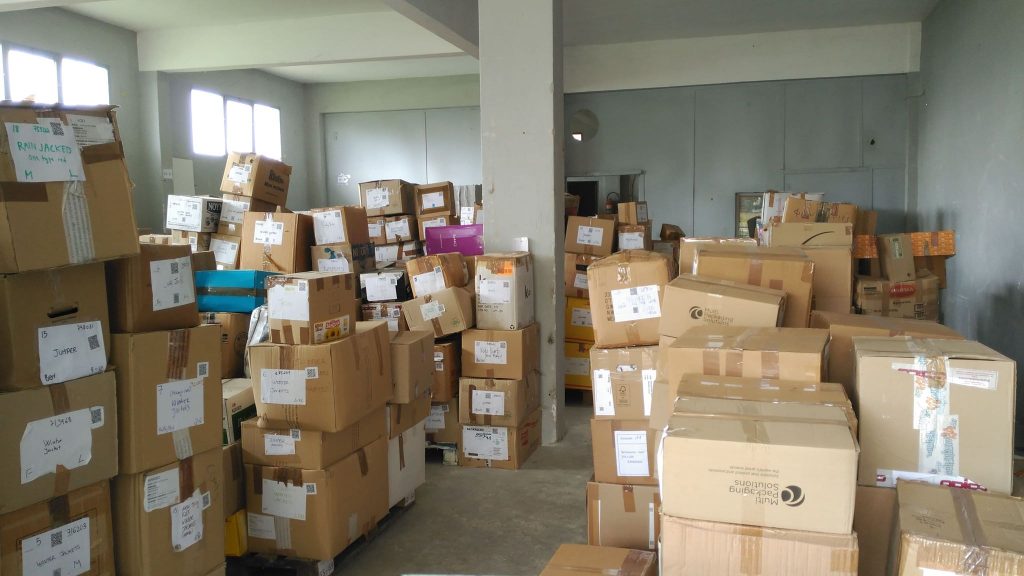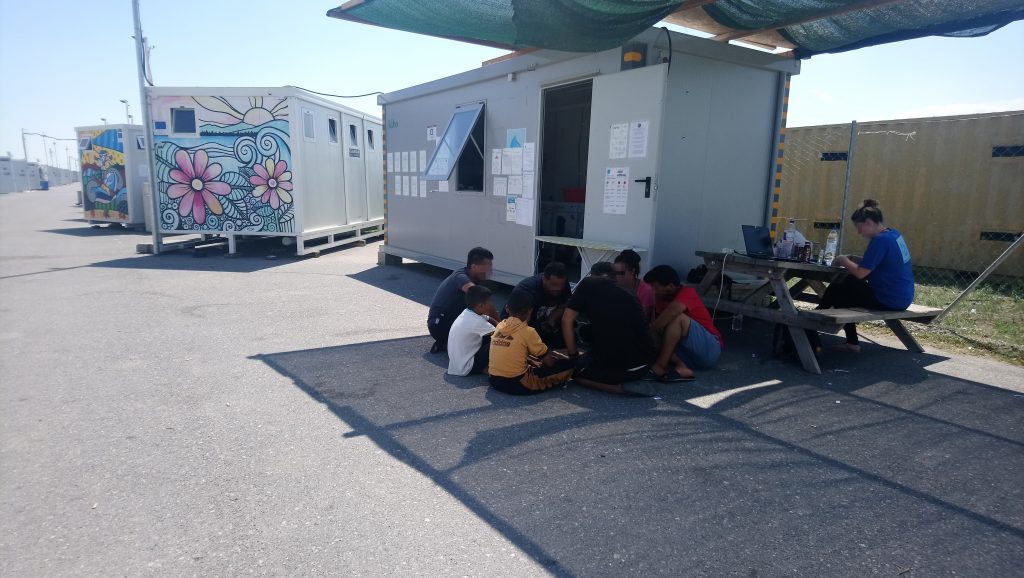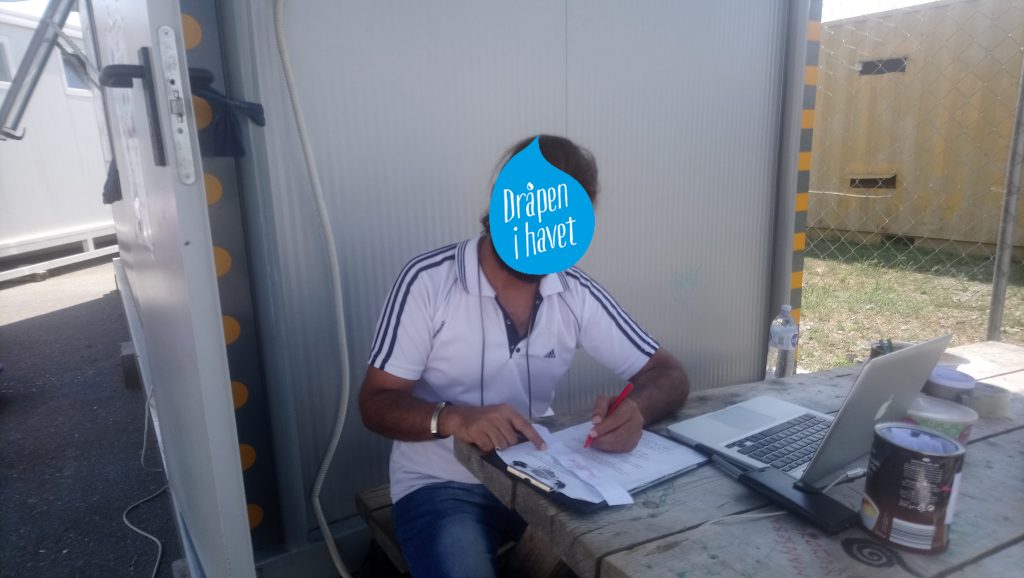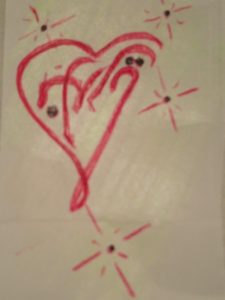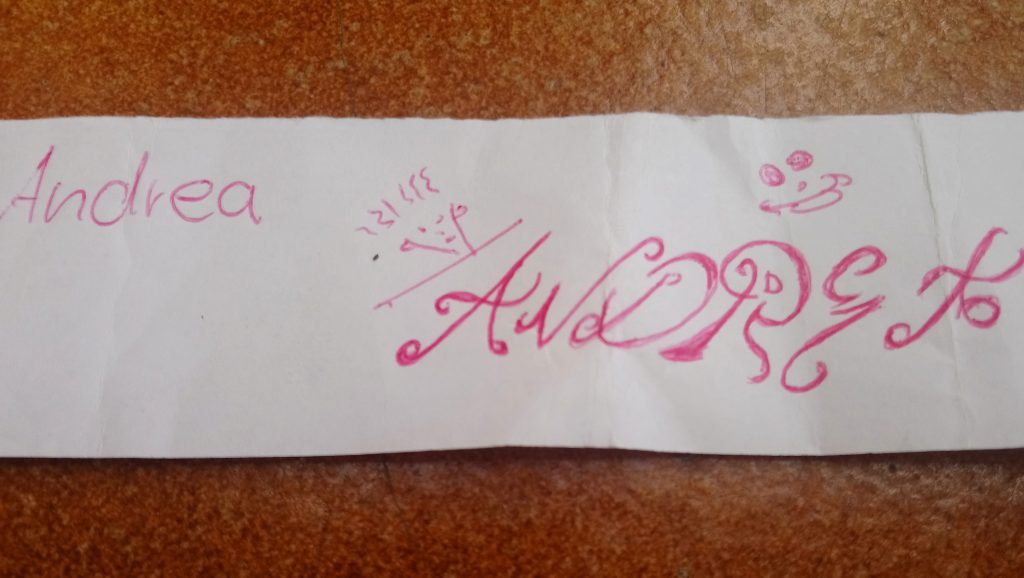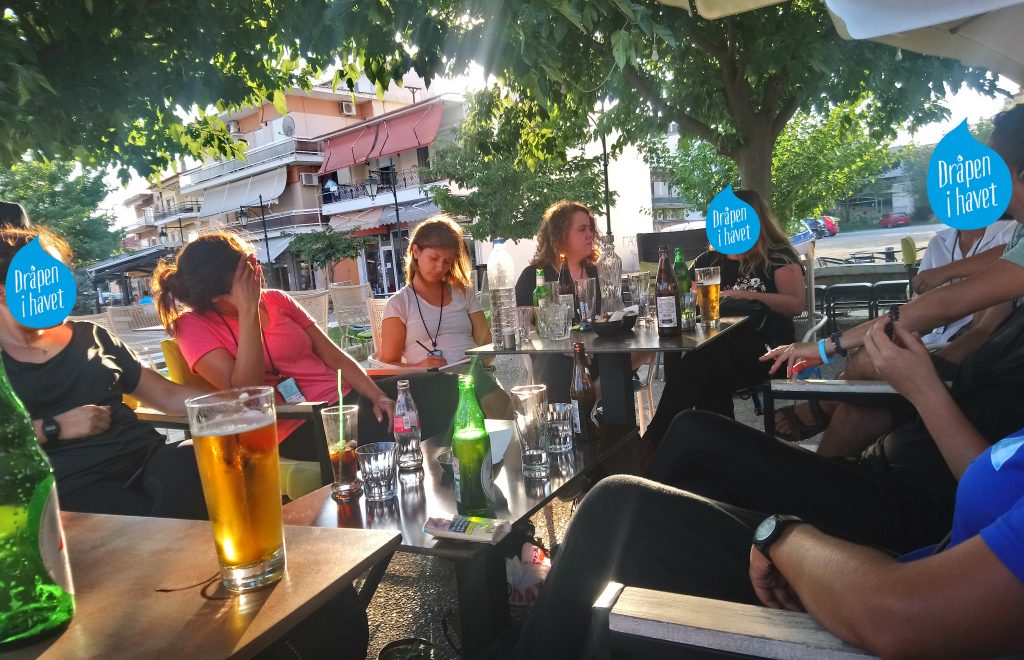Day off
On our day off a volunteer from Catalonia and I take the Intercity bus to Thessaloniki.
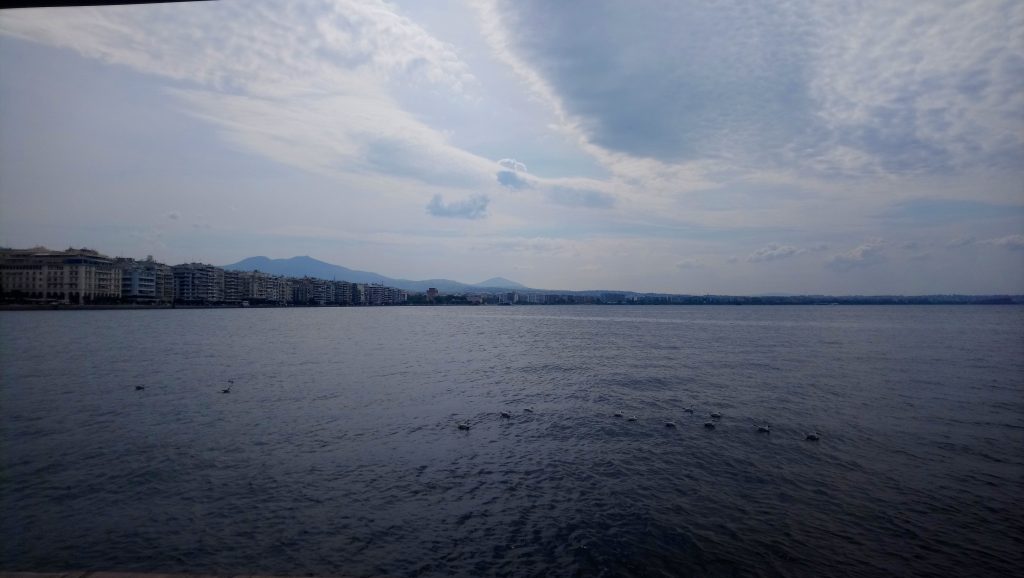
We visit the harbour, take a walk through the city.
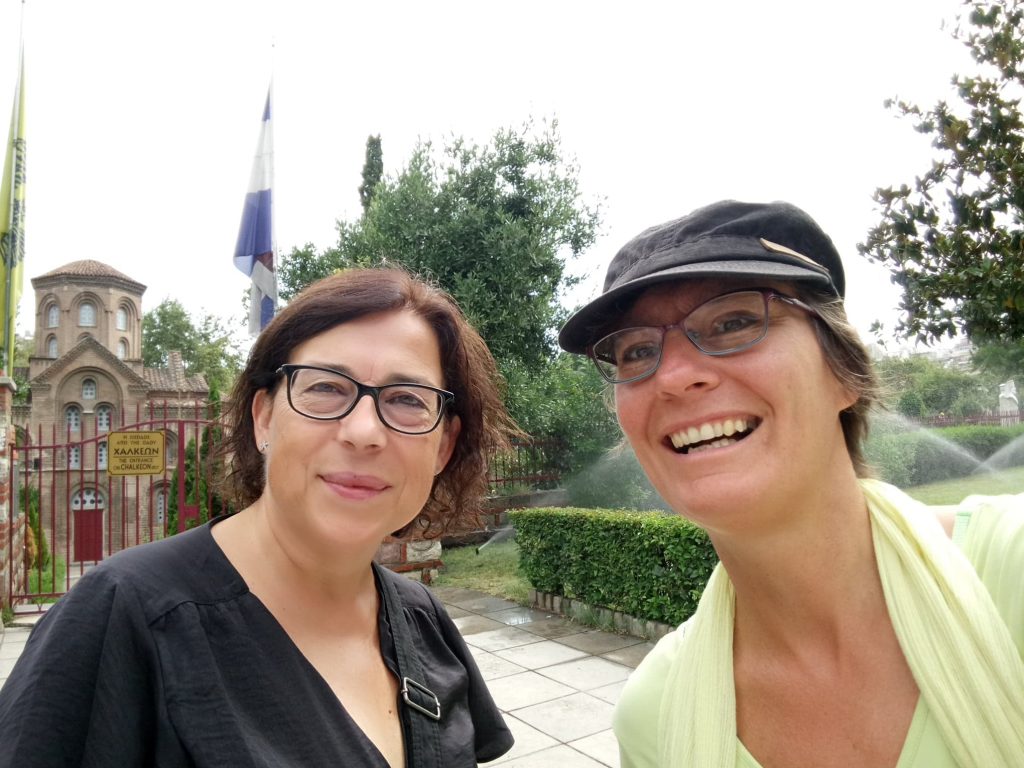
We visit some old Romains buildings over there and a typical market hall.
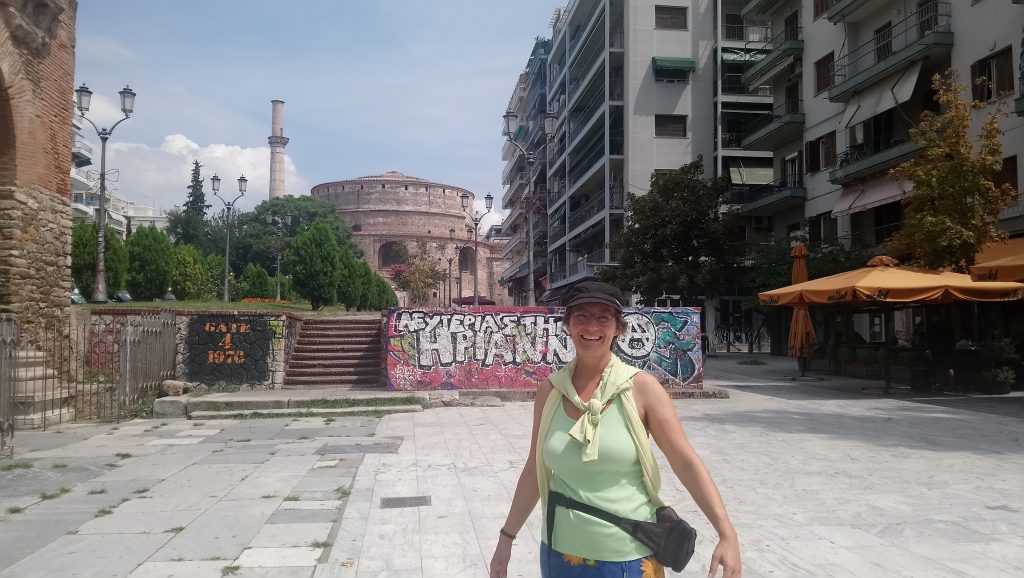
While having a cup of coffee at the waterside I try to write down some answers to the questions that I had received from my friends the last days.
“Which possibilitys do NGO’s have to help refugees in Greece?”
What we can do while working here as a volunteer is to make the daily live a little bit more comfortable and easier. Six days a week the Dråpen i Havet volunteers help with distribution of fresh fruit and vegetables. They also sell some dry food and donated clothes, that refugees can buy with a cryptocurrency called Drops.
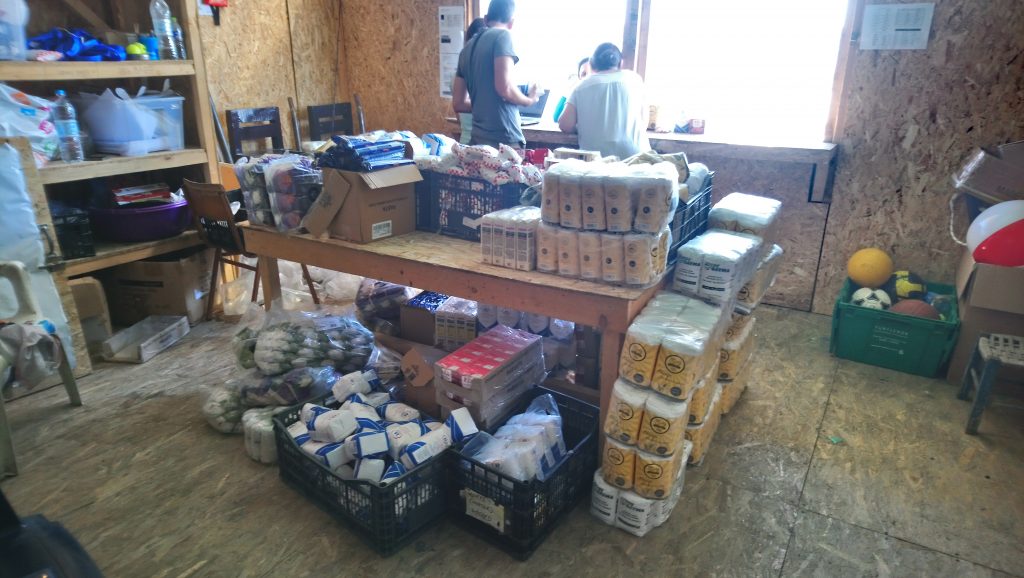
They run a laundry where the residents can wash their clothes. During the summer in the evenings residents and volunteers do fun sport activities like volleyball in the community space.
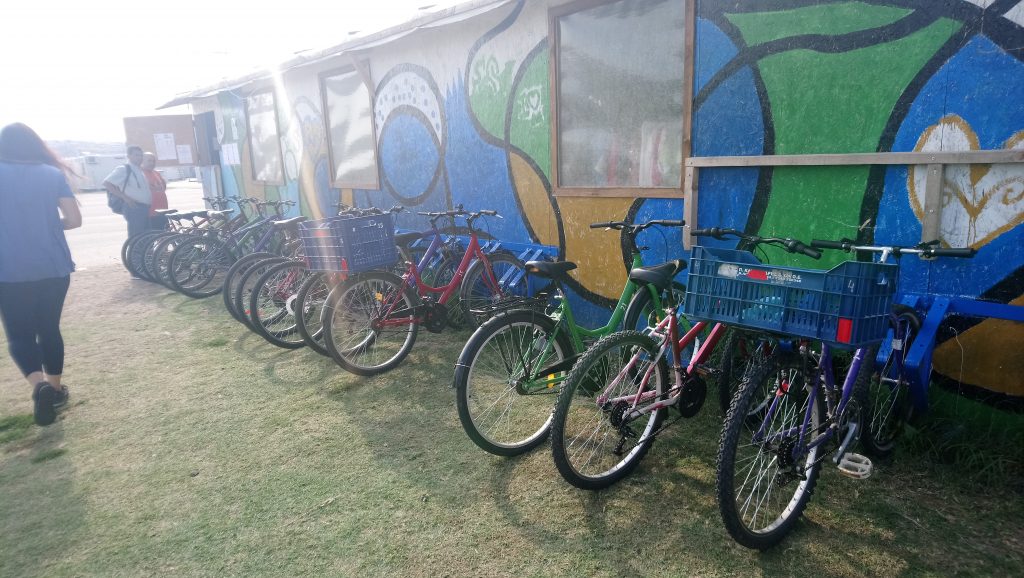
The organisation runs bike rentals for refugees and a build and repair workshop.
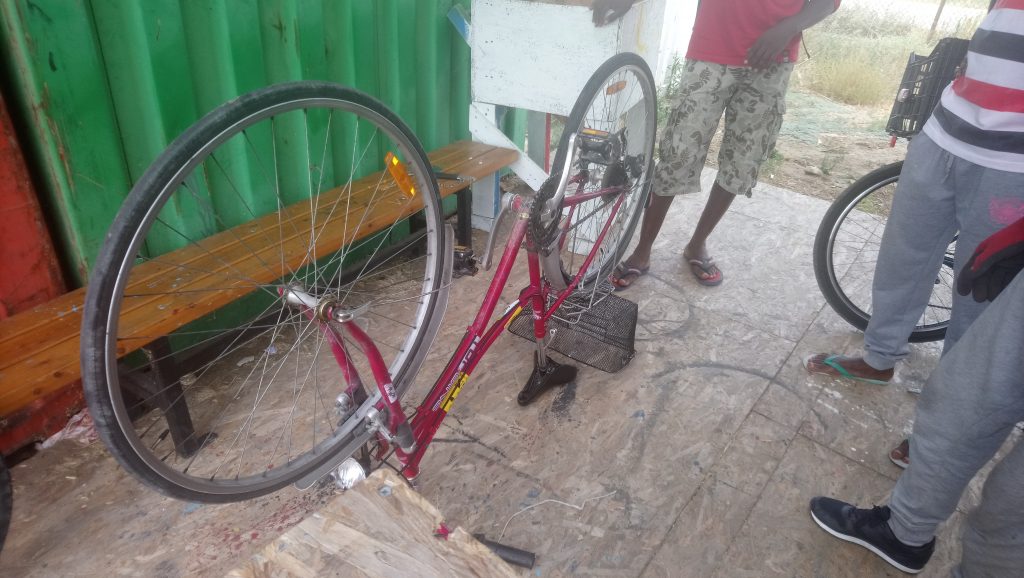
Most of the buildings like this canopy were self-made by refugees and volunteers.
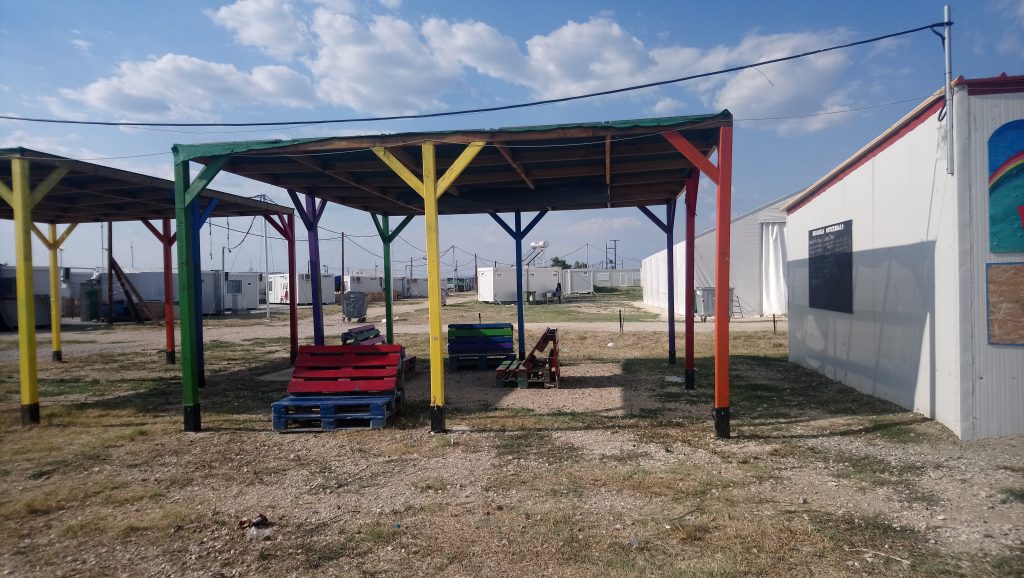
The cooperating organisation We Are Here runs sport and childcare activities, gives English lessons and yoga classes to women, and starts gardening projects for all ages.
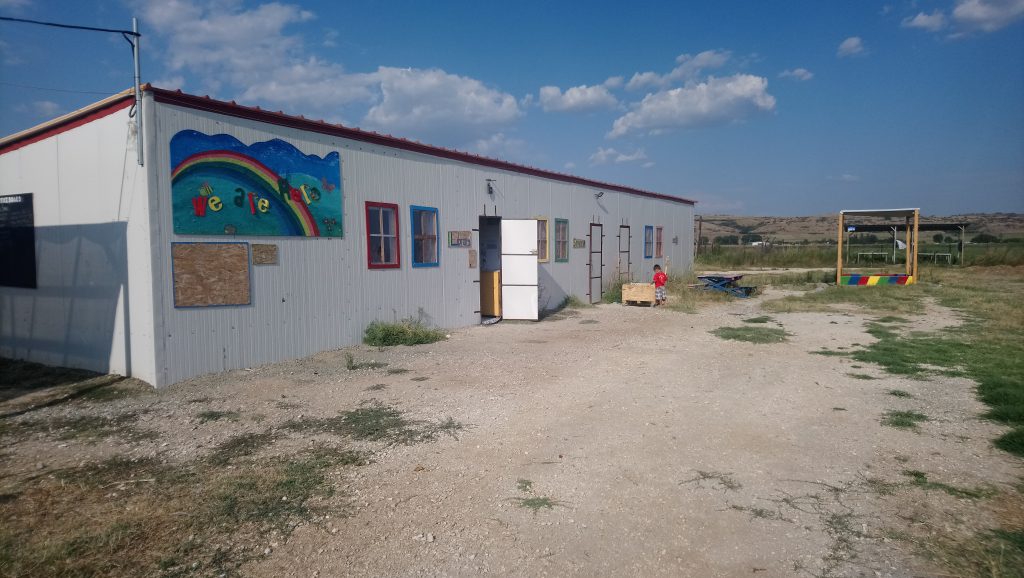
There is also a library where the refugees can borrow books two times a week.
There is the Childrens Friendly Place, where a young social worker and some volunteers play with them.
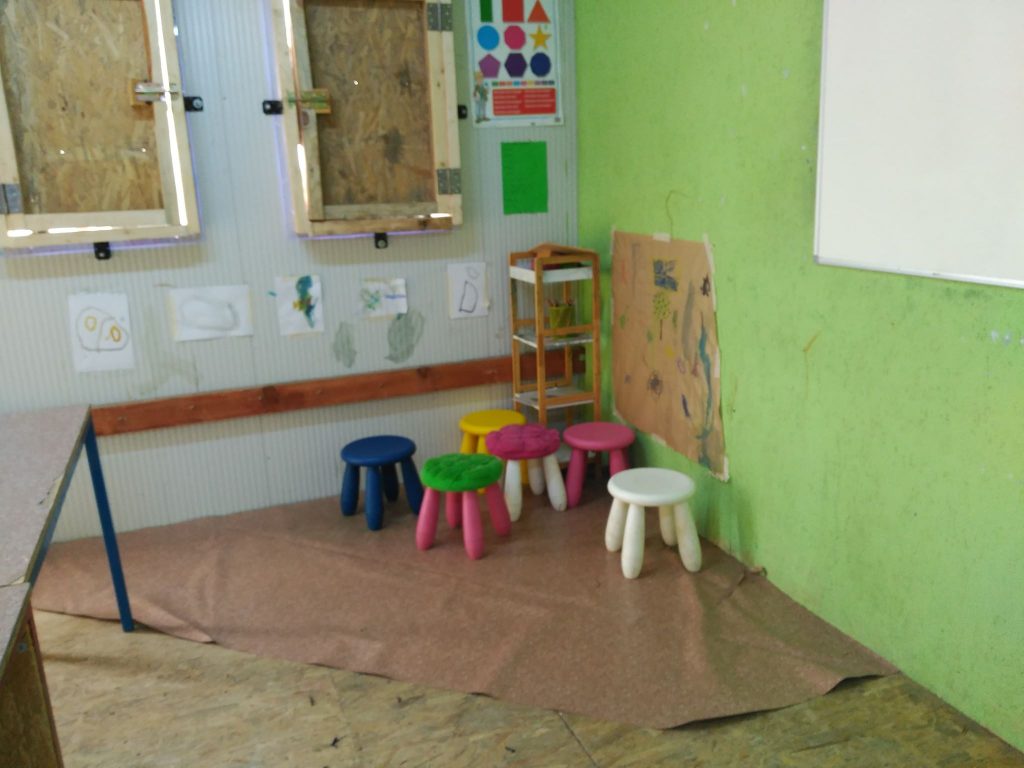
Do the people already speak a little bit English or German?
Some people do, at most countrys they learn English at school but because of war and flight some children couldn’t visit school for a long time.
Will these people be able to leave the camp and to move to other countries?
Many people told me, that they wanted to go to Germany, to France, to Sweden or to some other places but first they needed visa. Some had been waiting at Nea Kavala for two years. Leaving Greece was not easy. Staying at Greece was almost impossible because there were hardly any jobs.
One guy had told me that he had been offered a job for a salary of € 13 / day at Thessaloniki harbour. After a few months he had stopped this hard work because living at Thessaloniki would cost much more than he had earned. Some companies really seem to exploit refugees.
Nobody knows if these people will ever get the possibility to get asylum in Greece or to get visa to move to another country. Some people have been waiting here for two years. One man had told me up to now he had allready done seven interviews at the Greek authorities and there was still no decision.
Is it frustrating to work at a refugee camp or do you think volunteering at Nea kavala is doing a good job?
Sometimes it is very frustrating, because there are no future prospects. Many times ask myself, if it makes any sense to be here, but when I see what NGOs had built up within the last to years I know that we do a good job. Every little piece of help is a drop in the ocean. And very drop makes a difference. That’s the Drop in the Ocean’s philosophie.
Nea Kavala two years ago:
1500 people in tents without water, no money for clothes…
After reading this I understood the worth of our work over here.
http://travellingbureau.blogsport.eu/2016/07/24/nea-kavala/
warm blankets for Nea Kavala, Donations here:
https://needslist.co/nlclaim/1400/add/20

